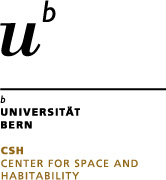The Project
The Final Frontier
“Space: the final frontier. These are the voyages of the starship Enterprise. Its five-year mission: to explore strange new worlds, to seek out new life and new civilizations, to boldly go where no man has gone before.”
The popular television series "Star Trek" has captured the imagination of countless viewers since the 1960s. But it is after all just fiction, science fiction, and not science? Or could there be something to the idea of "unknown life forms and new civilizations" in space? Are science and science fiction perhaps closer than we think?
What is it?
In fact, more and more scientists are coming to see extra-terrestrial life as a likelihood. When the Hubble Space Telescope launched in 1990, we knew no planets outside our solar system. Only in 1995 did the Swiss scientists Mayor and Queloz identify the first “exoplanet” orbiting a Sun-like star. Since then, several hundred have been identified. It is now believed that most distant suns are surrounded by planets. This makes it more likely that there are planets outside our solar system which are located in the "habitable zone" – having the "right" distance from their sun to potentially be habitable and having a composition and atmosphere conducive to life.
Nevertheless, there is still no proof of life beyond our planet. Rather it is a hypothesis which is debated in astrophysics and biology. Proponents point to the vastness of the universe and the huge number of planets, while sceptics point to the exceptional circumstances that are necessary to the formation of life. Some scientists emphasize the enormous adaptability and resilience of certain simple forms of life and believe that such a life can be widespread, but remain cautious with respect to more complex life forms.
The "Center for Space and Habitability" (CSH) at the University of Bern brings together natural scientists and scholars of different disciplines from all over the world to study exoplanets and the possibilities of extra-terrestrial life, while developing interdisciplinary networks and new research perspectives. Aware that such research raises conceptual issues and fundamental questions of human self-understanding, the centre has also involved the disciplines of literature, philosophy and theology. But why is the search for extra-terrestrial life interesting for these disciplines?

Imagining Other Worlds in Fiction
How do we contemplate the vast empty space which science still has to fill? In 1937, science fiction writer and philosopher Olaf Stapledon wrote: “The silent darkness, the featureless unknown, were more dread than all the terrors that imagination had mustered.” (Star Maker)
Science fiction occupies a space in between knowledge and possibility. As a literary endeavour, science fiction responds to the human need to imagine answers to the philosophical and theological questions raised by scientific endeavour. What mythical and fictional forms does literature use to populate and map out the space beyond our own solar system? Literature uses imaginative space to explore the questions posed by philosophy and theology, but it also sets its own questions: What role does fiction and fictionality have to play in our first steps out beyond our own solar system? How much can the literary imagination help us to prepare for what we will find there? This project investigates the ways in which a literary approach can contribute to the task of space exploration.
The Search for the Unknown as a Philosophical Problem
Since its origins, philosophy has concerned itself with human knowledge. It takes knowledge claims raised by the sciences or everyday life, and attempts to give them solid foundations through critical inquiry. From this perspective, the search for extra-terrestrial life is an attempt to expand our knowledge. The crucial philosophical question then, is whether and how such an attempt can succeed.
The search for extra-terrestrial life is faced with a problem that is recognised in Plato's dialogue "Meno": We can search us unknown object only when we realize what it means to find it. We need, therefore, to identify what it is that we are looking for, and what the features the object of our search might have.
The search for extra-terrestrial life can succeed only if we know what life is. Of course, we know the life forms that exist on our planet. But can we transfer what we know about life here to the entire universe? Or is that just a form of parochialism? What exactly is life? How can it be identified over vast distances? At the CSH we are using interdisciplinary research to answer these philosophical questions.
Religion as Relic or Guide?
What it would mean for theology, if extra-terrestrial life were discovered - or if, on the contrary, it turned out that we are alone in the cosmos? These are not new questions. Since the middle ages it has been debated whether an infinite, omnipotent God would only have created one living world. Nicholas of Cusa (1401-1464) was among those who held a many-world theory, and Giordano Bruno (1548-1600) believed that the universe is full of planets that are populated with life. But would this not show Christianity to be a relic of an anthropocentric and geocentric world view? Or is it possible to reconsider Christology with a cosmic dimension? And can theology help us to deal with the idea of an infinite universe and a diversity of life?
If humanity reaches for the stars, new questions of orientation arise. Can we export earthly life to Mars? What is the value of extra-terrestrial life, if it actually exists? What kind of social forces would operate in a human expansion into space, and with what purpose?
For all these questions, one thing is nearly certain: Even if extra-terrestrial civilisations exist, it would be nearly impossible to have contact with them. Our knowledge of physics suggests that the distances would be insurmountable. And the ‘warp drive’ of the Starship Enterprise unfortunately remains in the realm of imagination.
